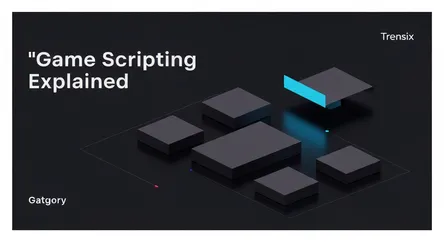Game
Game Scripting Explained

Discover what game scripting is, why it's essential in modern game development, and how it empowers creators to build interactive game logic.
What is it?
Scripting in game development is the process of writing code using a simpler, high-level programming language to control specific game logic, events, and object behaviors. Unlike core engine programming (often done in C++), scripting operates within the framework provided by the game engine. Languages like Lua and Python, or visual scripting systems like Unreal Engine's Blueprints, are commonly used. This allows developers to quickly define character AI, create quest objectives, design user interfaces, and manage in-game events without altering the engine's fundamental code.
Why is it trending?
Scripting is trending because it significantly lowers the barrier to entry for game creation and accelerates the development process. It empowers designers, artists, and writers who may not be expert programmers to implement their ideas directly into the game. This rapid iteration cycle is crucial for testing and refining gameplay mechanics. Furthermore, the rise of user-generated content (UGC) platforms like Roblox and Fortnite Creative has made accessible scripting tools essential, allowing a global community of players to become creators themselves.
How does it affect people?
For game developers, scripting streamlines workflows, enabling teams to work more efficiently and creatively. It separates complex engine tasks from day-to-day gameplay logic creation. For players, this translates into richer, more dynamic, and more complex game worlds. It also powers the modding community, allowing players to create custom content, from new quests to total conversions, which dramatically extends the lifespan and replayability of their favorite games. This fosters vibrant communities and empowers a new generation of aspiring developers.